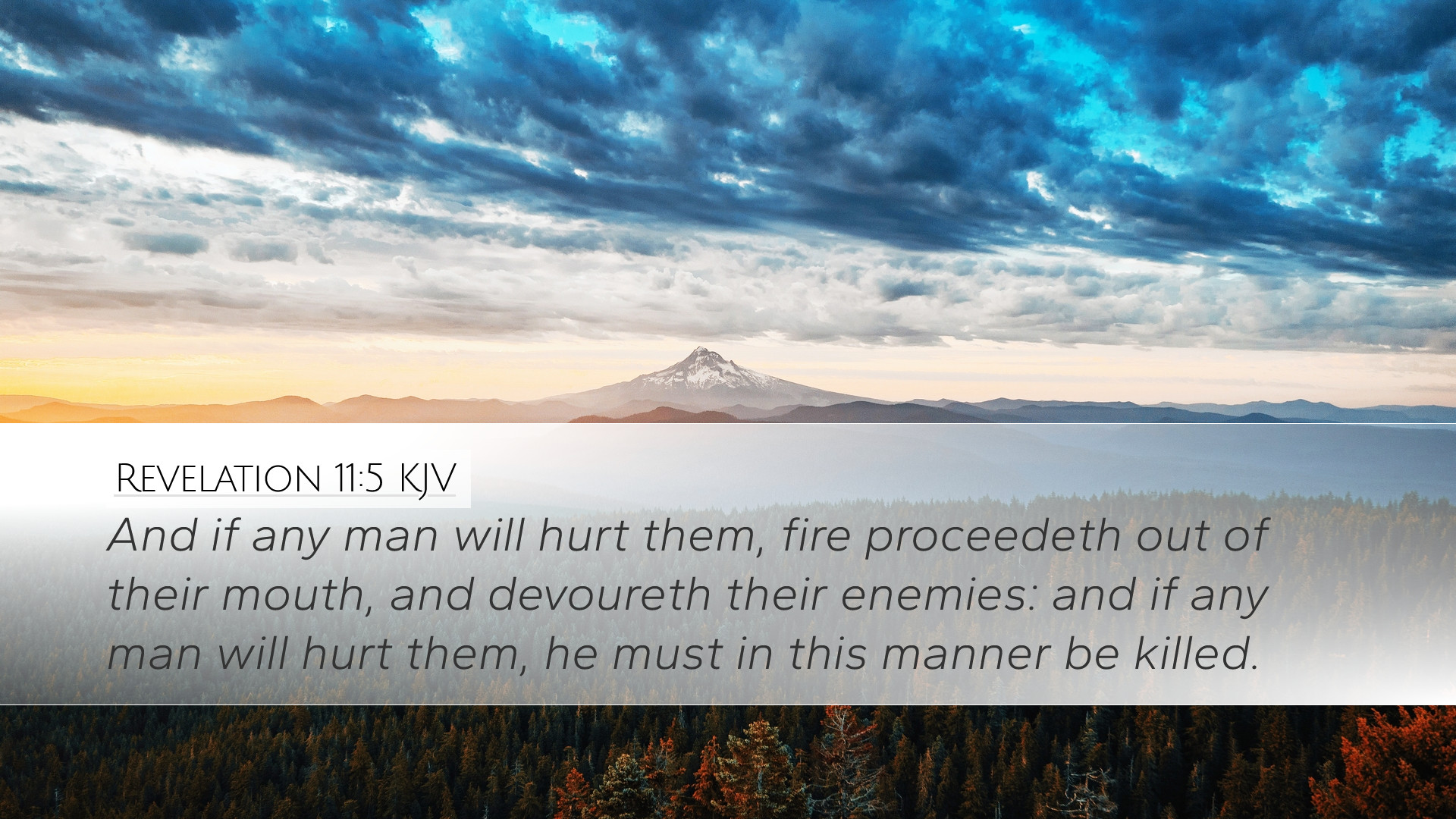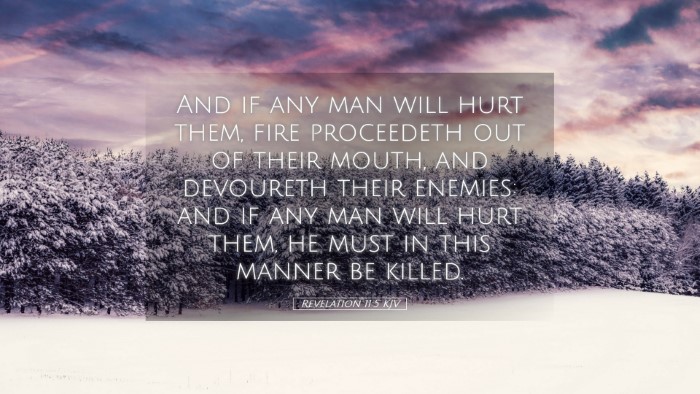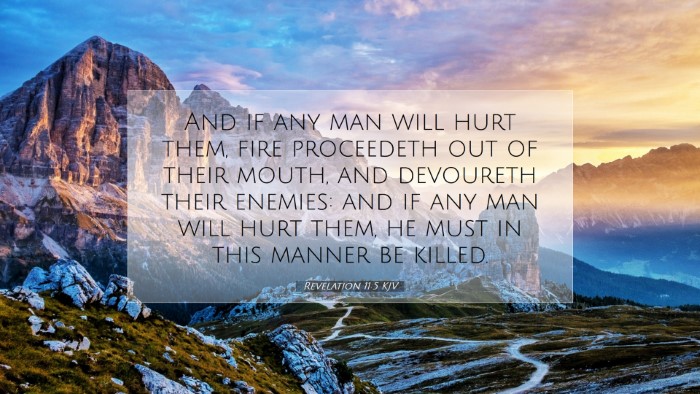Commentary on Revelation 11:5
Revelation 11:5 states: "And if any man will hurt them, fire proceedeth out of their mouth, and devoureth their enemies: and if any man will hurt them, he must in this manner be killed."
Introduction
This verse is part of a larger narrative concerning the two witnesses who prophesy during the last days. Understanding this text requires a grasp of the symbolic nature of Revelation and the theological implications of divine witness, judgment, and protection.
Understanding the Context
This passage falls within a series of events during the tribulation period, where the two witnesses are empowered to proclaim God’s message. They perform miracles, reflecting God’s power and authority. The supernatural aspect of their ministry is emphasized in this verse through the mention of fire proceeding from their mouths.
Commentary Insights
Insights from various commentators reveal rich theological reflections on this verse:
Matthew Henry's Commentary
Henry points out the divine protection afforded to the two witnesses. He suggests that the fire consuming their adversaries serves as a metaphorical depiction of God's judgment. The imagery of fire is prevalent in the Bible as a representation of God's purifying presence and judgment against sin. Henry articulates that the witnesses' authority to call down fire is indicative of their prophetic role, bringing to bear divine retribution upon their opponents.
Albert Barnes' Notes on the Bible
Barnes emphasizes the significance of the phrase "if any man will hurt them." This reflects the idea that God’s servants will encounter opposition, yet they are safeguarded by God's mighty power. Barnes elucidates the understanding that their ability to emit fire symbolizes both the fervor of their witness and the severity of the judgment against those who resist God’s voice. This portrays the intense struggle between divine truth and human rebellion.
Adam Clarke's Commentary
Clarke expands on the phrase "fire proceedeth out of their mouth," interpreting it as an expression of their preaching. This fire represents not only a literal judgment but also the burning conviction of their message, which brings conviction to the hearts of those who hear it. Clarke notes that the killing of their adversaries can be interpreted spiritually, signifying the death of falsehood and apostasy through the truth of their testimony. He warns that the ultimate goal is not destruction but the call to repentance in light of divine truth.
Theological Implications
This verse raises significant theological reflections regarding God’s justice and protection of His messengers.
- Divine Protection: The assurances that the witnesses are under God’s protective hand highlight the truth that God defends His faithful against opposition.
- Judgment on Rejection: The fiery judgment consequent on hurting the witnesses serves as a stark warning about the seriousness of rejecting the messengers of God.
- The Role of Prophecy: The imagery points to the enduring role of prophetic voices in both the Old and New Testaments, suggesting that God will always maintain a testimony even during dark times.
Practical Applications
This verse is not merely a historical account but serves to encourage and challenge believers today:
- Encouragement in Persecution: The assurance of God's protection can embolden Christians facing spiritual or physical persecution in their own contexts.
- Understanding the Cost of Truth: Believers should recognize that standing for truth may lead to opposition, yet they are protected by God's might.
- Spiritual Discernment: This scripture invites self-examination regarding how one responds to prophetic voices and whether one heeds the call to repentance.
Conclusion
In Revelation 11:5, the imagery of fire and the death of adversaries underscore the seriousness of God's message as delivered through His witnesses. This verse serves as a profound reminder of the authority and power that God delegates to His messengers, coupled with the extraordinary challenges they may face. Understanding this passage enriches our comprehension of divine witness, judgment, and the ultimate victory of truth over falsehood. It calls believers to remain steadfast in their faith, recognizing both the gravity of their witness and the unyielding nature of God’s protection.


